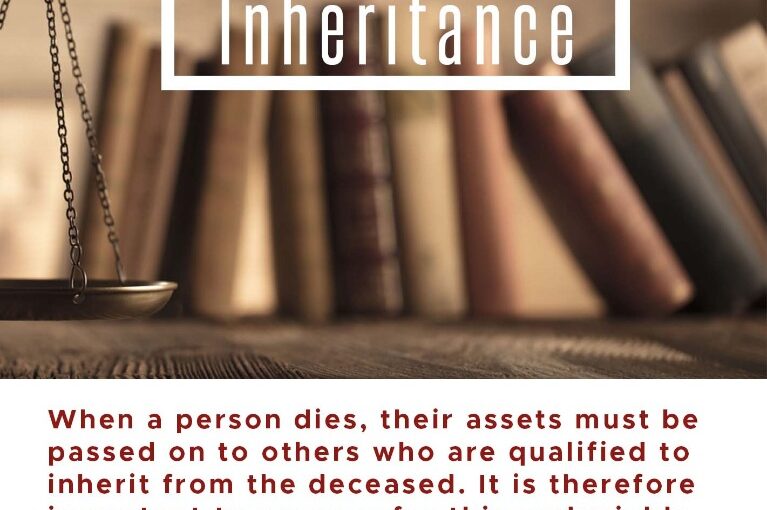THE LAW OF INHERITANCE
SUCCESSION
Death marks the culmination of one’s life. Death is a certainty for every person currently living. When a person dies, their assets must be passed on to others who are qualified to inherit from the deceased. It is therefore important to prepare for this undeniable ending. This is where the law of succession kicks in. it refers to the rules that control the transfer of assets of the deceased which are subject to distribution among beneficiaries.
It has been said that the law of succession plays two key roles; an economic and social function. Regarding the economic aspect, the law of succession regulates the transfer of wealth upon a person’s death. This is because, subject to certain limitations, a person may freely indicate how he wishes his assets to be distributed. As it pertains the social aspect, the law of succession encourages, embolden and bolster the family as a social unit.
GENERAL PRINCIPLES
Freedom of Testation
A deceased person is free to exclude or include any person as a beneficiary to his assets, subject to certain limitation. This concept is known as the freedom of testation and the main philosophy behind it is to allow the owner of assets to do as they wish with what belongs to them. To every general rule there are limitations. The limitations are sourced from both common law and statutory law. At common law, a bequest must be clear (vague), impossible, immoral (contrary to public policy). For example, a term in a will that a person can only inherit if they are married according to Muslim laws. On the other side of the spectrum, the Succession Act at Section 6 postulates that a court may order payment out of the estate of the deceased person for the benefit of a surviving spouse or child. Section 5 of the Law of Inheritance Act is a clear example of the freedom of testation principle. It provides that every person competent to make a will shall have full power to disinherit or omit to mention any child, parent, relative or descendant.
Definition of an Estate
Another key principle is that of an estate. An estate comprises of both assets and liabilities. An estate refers to all assets of the deceased person after all creditors have been paid, administrative fees have been covered and other costs. Therefore the beneficiary does not immediately become owner of inherited assets immediately after death of the deceased.
Requirements for Succession
The first requirement is that the deceased must have died. A beneficiary cannot inherit when the testator is alive. One of the exception is however when there is a presumption of death. Secondly, the beneficiary must be alive at the time of delatio (death of the testator) unless the testator had stated otherwise.
TESTATE SUCCESSION & INTESTATE SUCCESSION
Intestate Succession
The law of intestate succession is a body of rules which determines how the estate of a deceased person will devolve (i) where he/she dies without a will; (ii) where the will is declared invalid; or (iii) where they have a partial will (i.e. a will without a residuary clause). In Botswana, the estate of a deceased who dies intestate can devolve either under statutory law (i.e. rules in the Succession Act) or if the deceased was a tribesman, then under the rules of customary law.
Testate Succession
These are rules that regulate the distribution of an estate according to the wishes of the testator expressed in a will.



Leave a Reply